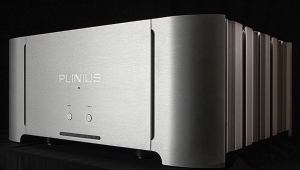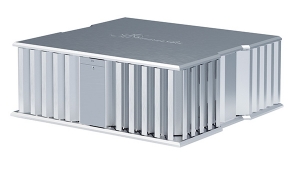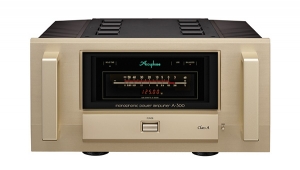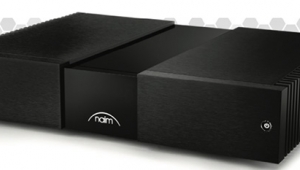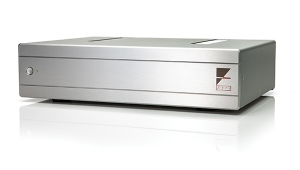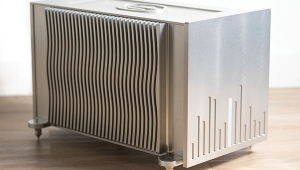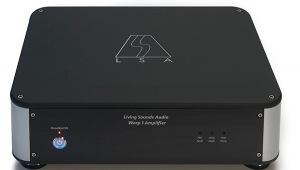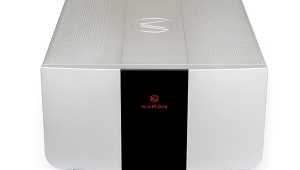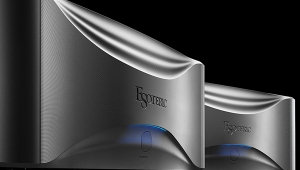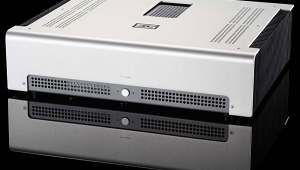| Columns Retired Columns & Blogs |
Quad 405 power amplifier
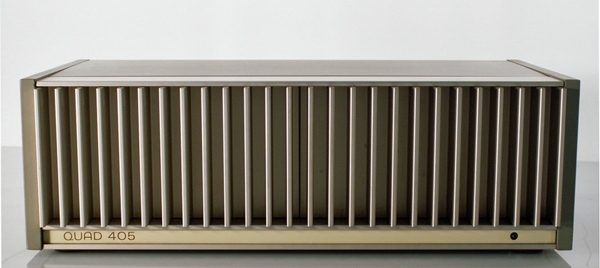
This is something we don't see too often: an entirely new approach to power amplifier design. As Quad points out in its literature for the 405, class-A operation of transistors provides the lowest distortion, but drastically limits the amount of power an output transistor can deliver without overheating. (Most transistor amps use class-AB output operation, in which each of a pair of power transistors handles part of each signal cycle and shuts down during the other part. Imperfect synchronism between the two halves causes the familiar "crossover distortion," which accounts for most solid-state sound. In class-A operation, each output transistor draws current though the entirety of each signal cycle, eliminating the crossover transition but doubling the amount of time current is drawn, and thus tending to cause the transistor to heat up more.)
In "current dumping," a low-powered, low-distortion class-A amplifier is used to control the amount of current passing through a pair of heavy-duty "dumping" transistors, and it is the latter which provide the driving power (100Wpc) for the speakers.
The idea is ingenious, and while we cannot fault it on any theoretical basis, we must admit that the first amplifier embodying the principle has proved a bit of a disappointment. Our initial reaction on first hearing was that here was one solid-state amplifier that had neither hardness nor sizzle at the high end. It did not take us long, though, to observe that 405's high end errs in the opposite direction. It dulls the extreme highs—the ones that give air to the sound of strings and crispness to the sound of hard percussion. We were not surprised, however, to find that frequency response measurements failed to reveal the cause of the high-end dullness.
Other observations: Bass was somewhat sparse and a bit shy of impact, suggesting the possibility of some low-end (subsonic) filtering. Inner detail was fairly well-reproduced, depth was not very well-rendered, and the overall sound had a vaguely astringent quality to it—the antithesis of richness or warmth. For $410, we feel it is possible to do better than this. Perhaps faster "dumping" transistors might help.—J. Gordon Holt
- Log in or register to post comments




